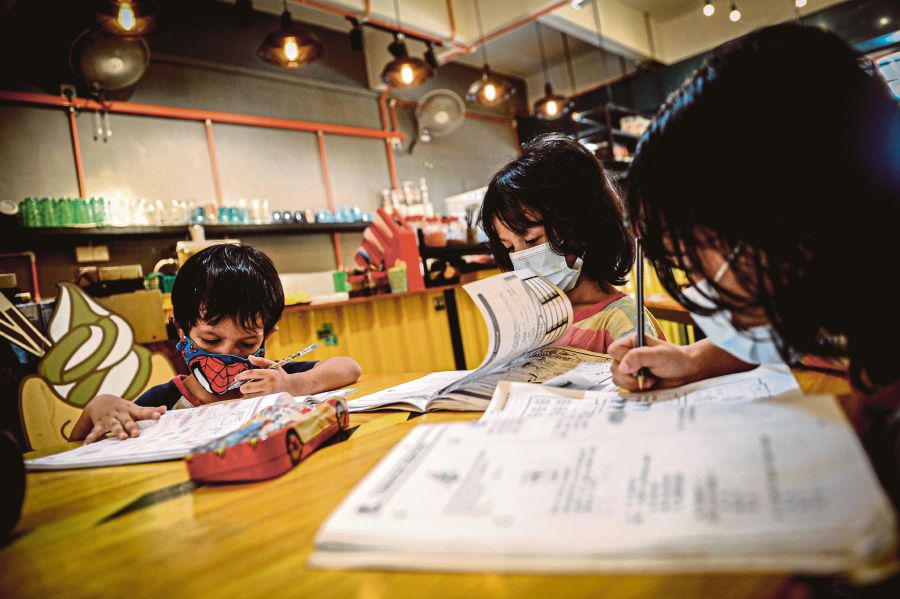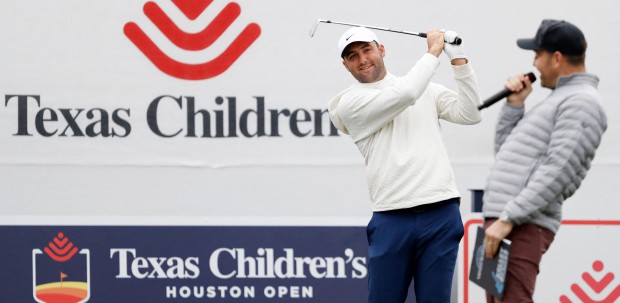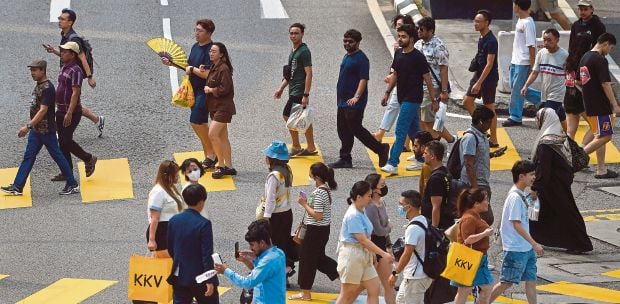An idle mind is the devil's workshop, and the Covid-19 pandemic has done a great job in turning many minds into Satan's playground with regard to schooling in the pandemic era.
As I write this, my 6-year-old son has not been to kindergarten for more than half a year.
All he does is watch Spongebob SquarePants the whole day, and if preschool is all about Bikini Bottom and its characters, he would have completed the syllabus and aced his exams by binging on all 264 episodes.
But, what is more worrying are the recent findings of the "Family on Edge" survey by the United Nations Population Fund and United Nations Children's Fund, which stated that poor students in the Klang Valley are dropping out and losing interest to study, no thanks to the pandemic disruptions.
Note the focus on poor students. If expanded, I believe this malaise is not only confined to the needy, and it may be wider throughout society.
I worry that my one and only son may have also lost his motivation to pursue knowledge.
Of course, closing schools and sending the children home is the right thing to do when infection cases start to rise. When it comes to studying, safety must take priority and there are other times to catch up.
But, in doing so, we must also be aware of the consequences in delaying education.
First, resolve and opportunities can be lost over time.
This may explain why older students are losing interest in returning to school.
Twenty years ago, when I was a fresh graduate, I resolved to study until I obtained a doctorate. But, here I am today, writing this article for your enlightenment.
As far as I know, it may be too late for me. All opportunities and motivation have diminished, and life priorities have shifted.
Second is the loss of confidence in a life-defining moment.
If I am taking a major exam soon, I will find it hard to give my best. I don't think my teachers have finished the syllabus and I don't even know if I can cope with something that will determine my future.
Adding to anxiety is the hardship that I have to face as exams cannot be delayed forever.
There are critical junctures in life with their respective time, and preparations must be made to face them.
So how can we address pandemic school disruptions?
I would recommend the obvious of taking a good look at the syllabus and schooling system.
Hence, the urgency to cater to students in critical years like Form Five and Six, and also to university students so they do not drop out of their studies.
Not forgetting also the lessons of young ones like my son to make sure they do not end up referring to Rabbids Invasion as "scientific research films".
Vital subjects should be identified and taught in the classroom, while others may be delivered online in a flexible mode.
This way, students who have no Internet will not miss out and if a spike in cases causes schools to close, some form of lessons may still be delivered.
However, all these are easier said than done. Like vaccine development, the school system and its curriculum have taken years to formulate, and I am not sure if the process can be rushed, crushed and fed to students in a short period, and behold, produce excellent results.
Allow me to share a scenario, but please do not take this as a hard fact because it is only an experience of my friend in the nation with the highest Covid-19 infection and death toll.
This old acquaintance is a Malaysian expatriate housewife living in Houston, Texas.
Since August, her daughters have been going to their private school that is 16ha-wide with 10 pupils per class — the perfect setting for physical distancing.
Yet, despite observing safety rules like wearing a face mask, my friend says 10 schoolmates have caught the coronavirus.
The pupils have been quarantined at home and told to follow lessons online.
However, the school is not closed and parents are still sending their kids to class. Mind you, these are elite Americans who can afford other means of studying.
That scenario is enough to spur Malaysian parents like me to pull my kid out of school and spell the end of education.
Yet, I cannot help but fear that my son has missed out on something important. This is a dilemma that should not be sidelined or neglected.
The writer is a NST sub-editor
The views expressed in this article are the author's own and do not necessarily reflect those of the New Straits Times






